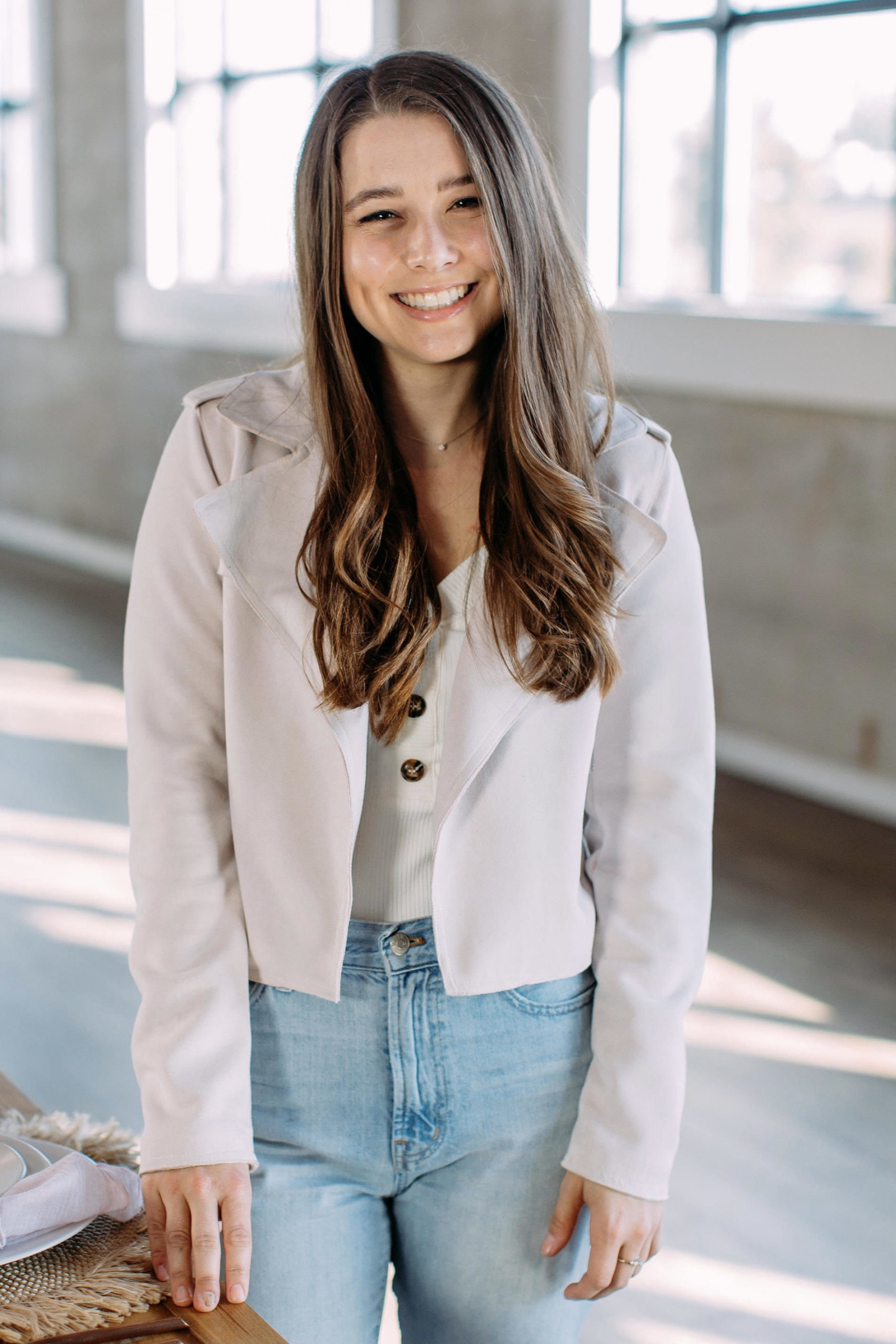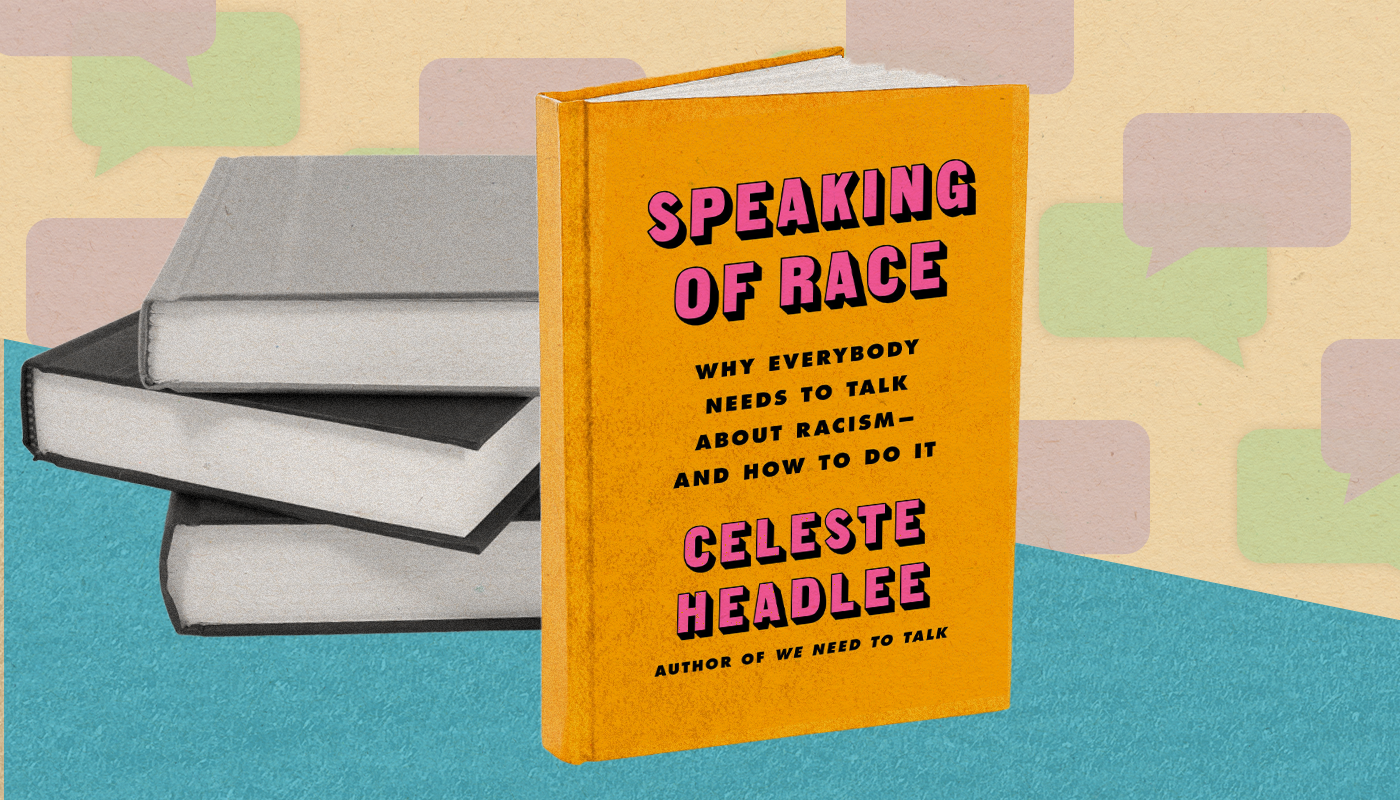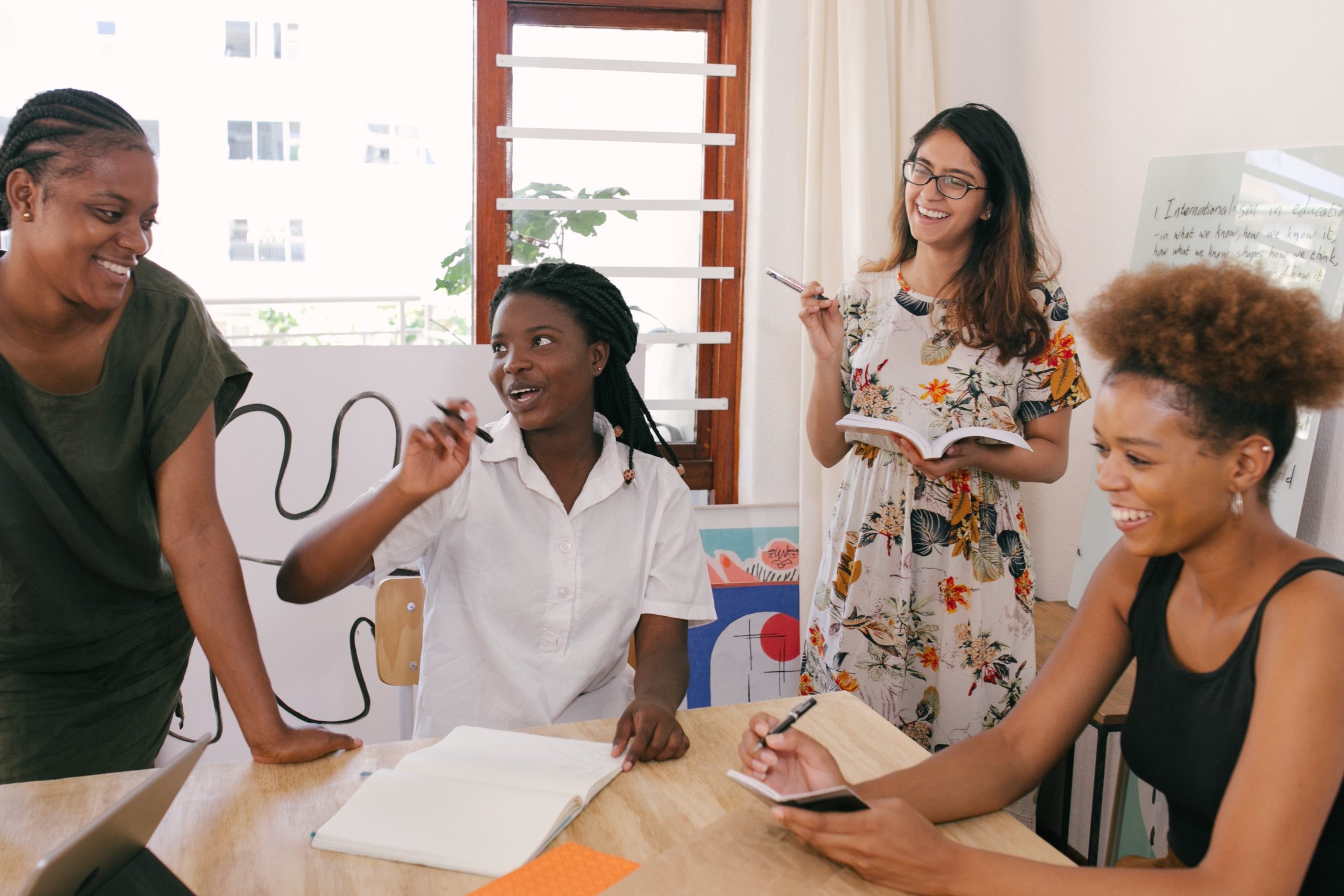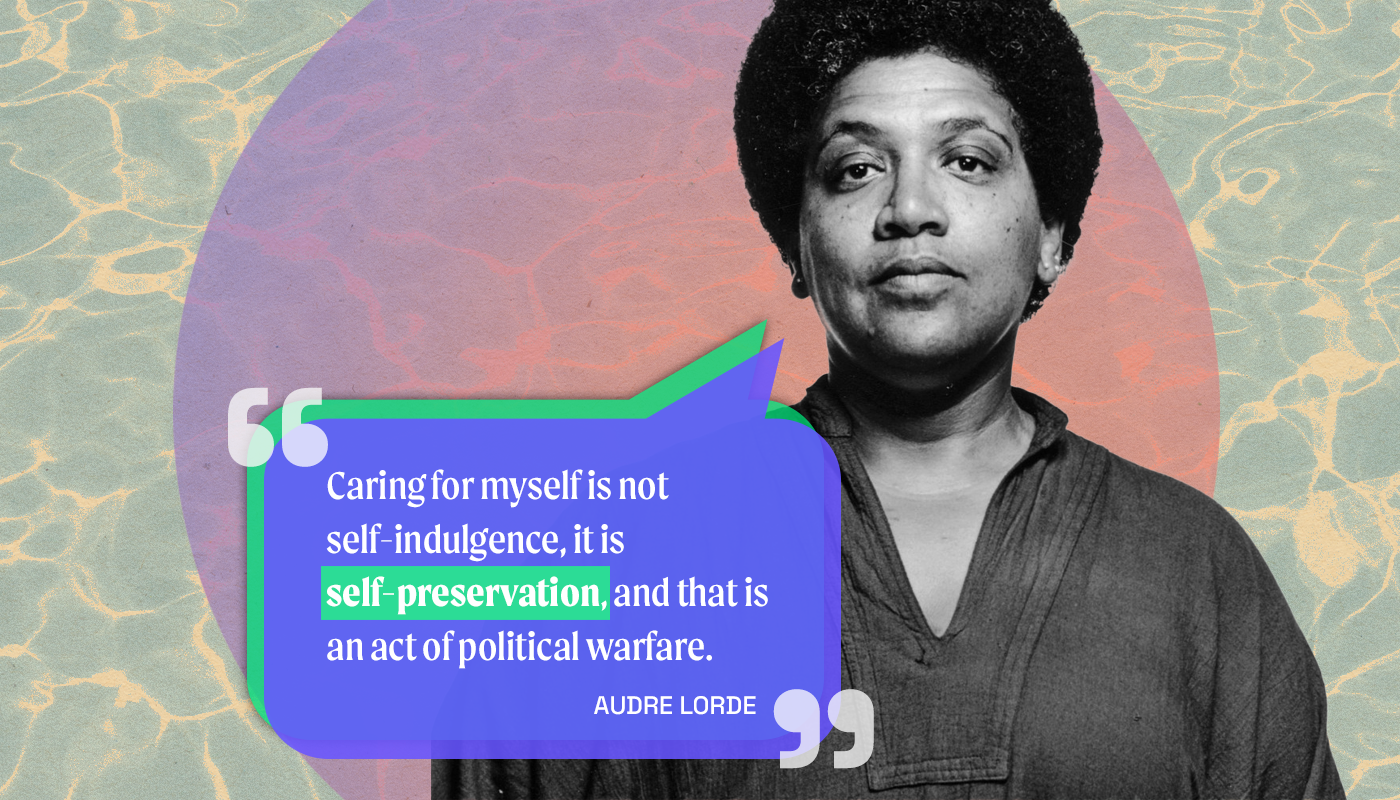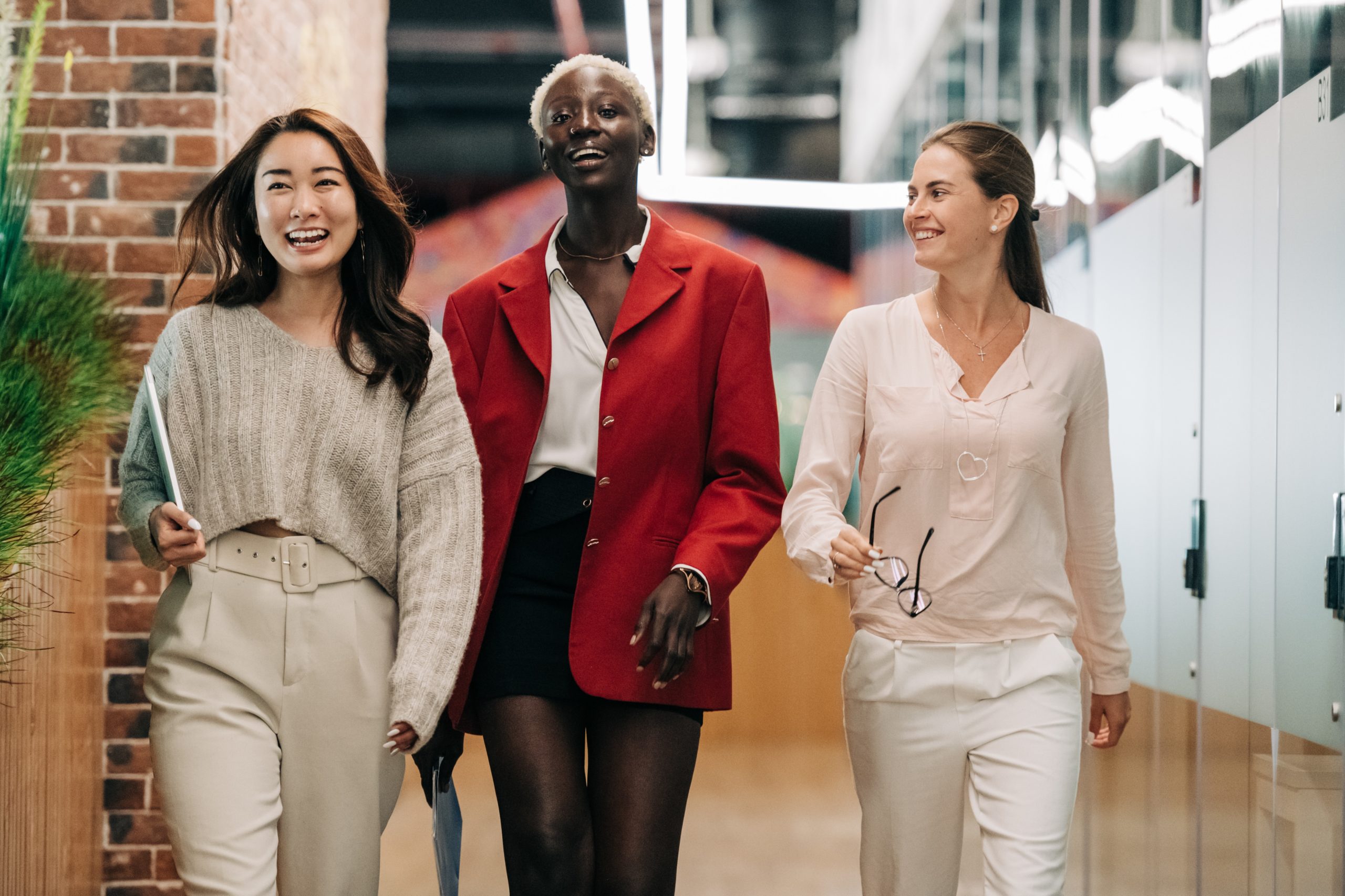Reasonable accommodations are the bare minimum
The 2020 Paralympics demonstrates ambition for inclusion with no game plan.
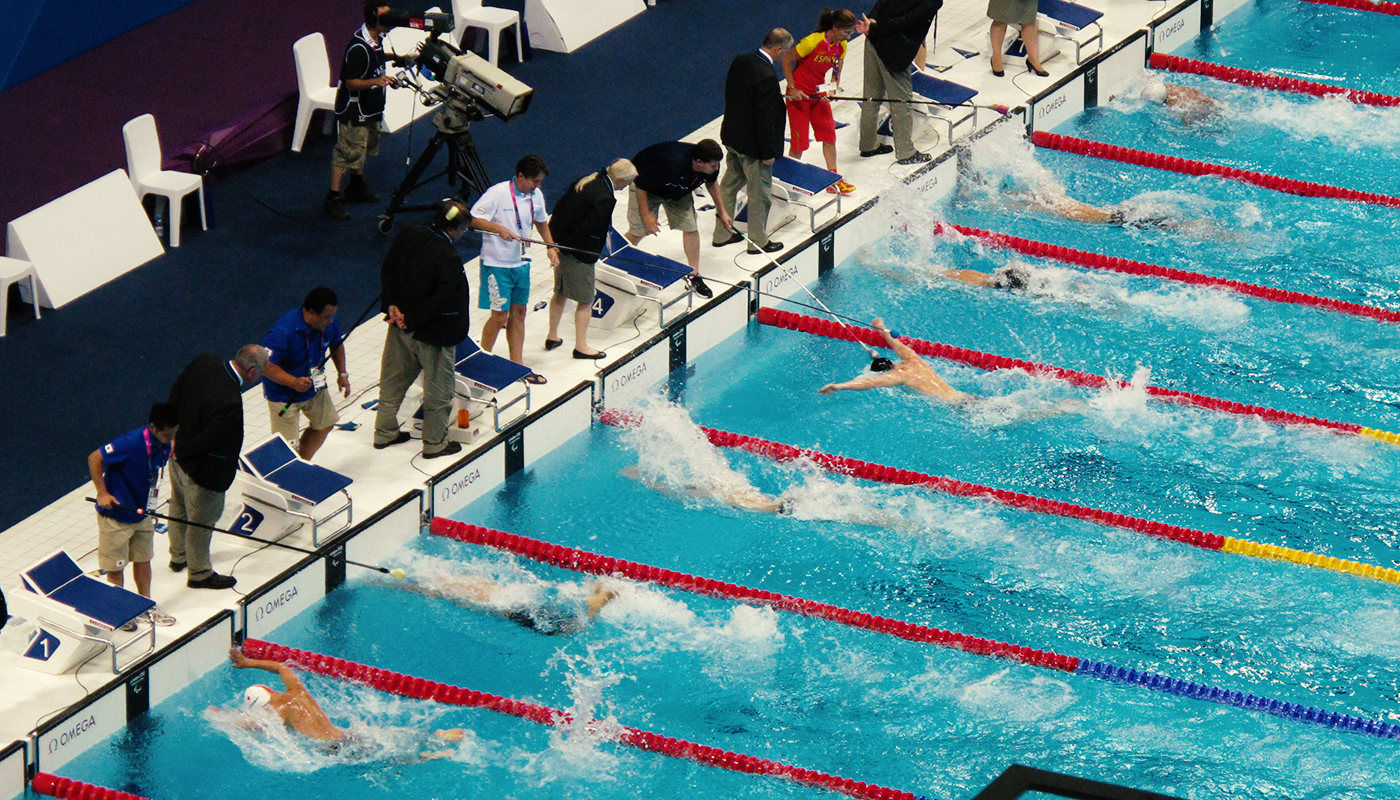
Paralympic blind swimmers tapped to show they should turn in 2012 Paralympics.
Becca Meyers, a 6x Paralympic medalist, trained for years to compete in Tokyo, only to have her dream cut short by the COVID-19 pandemic. She was thrilled to finally compete after an additional year of training, but the opportunity was once again taken away. This time, not because of a virus, but due to negligence.
Becca was forced to drop out after The United States Olympic & Paralympic Committee (USOPC) refused her request for a Personal Care Assistant (PCA) to accompany her during the Tokyo games. A reasonable request, as she is deaf and blind.
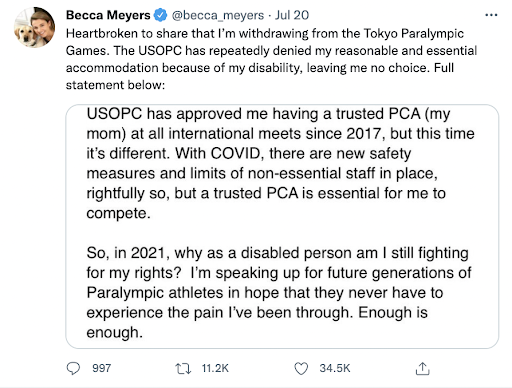 USOPC’s refusal of Becca’s request reveals an undeniable truth: there is still a long way to go to achieve a truly inclusive world.
USOPC’s refusal of Becca’s request reveals an undeniable truth: there is still a long way to go to achieve a truly inclusive world.
We cannot be selective when we practice inclusion; ![]() it must be a constant.
it must be a constant.
As we work and fight for a more equitable, inclusive world, we cannot continue to exclude people with disabilities.
The Paralympics were created to give athletes with disabilities a place to compete on a global scale. We must stop and assess what is going on when even the Paralympics refuse to accommodate individuals with disabilities.
61 million Americans live with a disability. An individual with a disability is almost twice as likely to be unemployed. This statistic clearly depicts a disparity facing the disabled community. Perhaps more saddening is that this exists now, at a time when we claim to prioritize inclusion.
Research on inclusion, however, highlights that inclusion goes beyond just needing a seat at the table. Reasonable accommodations, such as offering Becca a personal care assistant, are the bare minimum to foster an environment in which every individual knows that they belong and are appreciated.
Inclusion research says:
“To feel highly included, a person would not only say that they are treated fairly and respectfully, but that their unique value is known and appreciated, and they belong to the group.”
The world is better when everyone gets to participate. In a two-year research study of more than 100 practices that predict the highest performing companies, “Companies that embrace diversity and inclusion in all aspects of their business statistically outperform their peers.”
If the USOPC wanted to send the highest performing team to the Paralympics, fostering an inclusive environment ought to have been the first priority, and approving Becca’s request for a PCA was the least they could have done. It is disheartening to athletes and viewers to see a professional athlete drop out of the Paralympics because the USOPC wouldn’t do the bare minimum: ensure their athlete was able to compete.
Inclusion in sports is possible, but what I see here in Becca’s case is an ambition for inclusion with no game plan.
I write this as someone who has seen genuine inclusion in sports. My boyfriend, Jake Olson, is completely blind and played football at USC. It took care and consideration to create an inclusive environment. Jake had coaches who would pick him up and drive him to practices and events. Teammates that took the extra time to learn how to set him up. He had teammates who would walk with him. He brought his guide dog to the football games and plenty of other small adjustments, but at the end of the day, everyone was better off because he was there.
As Becca shared, she was heartbroken that she had to miss the Paralympics. But even more than that, her absence affects us all. Fellow Paralympians didn’t get to compete against her. They missed out on her experience as a professional swimmer. Her perspective. Her friendship. Her wisdom. Her competition. To put it bluntly, the USOPC robbed us of Becca’s unique value.
Unfortunately, the lack of inclusion is not an isolated event. People with disabilities constantly experience exclusion, and so we must do everything within our power to prioritize earnest inclusion in all our spheres of influence. Inclusion that sees and accepts people for who they are. Inclusion that happens even when it is not convenient or easy, so that one day, reasonable accommodations won’t be special. They will simply be the starting point.![]()

